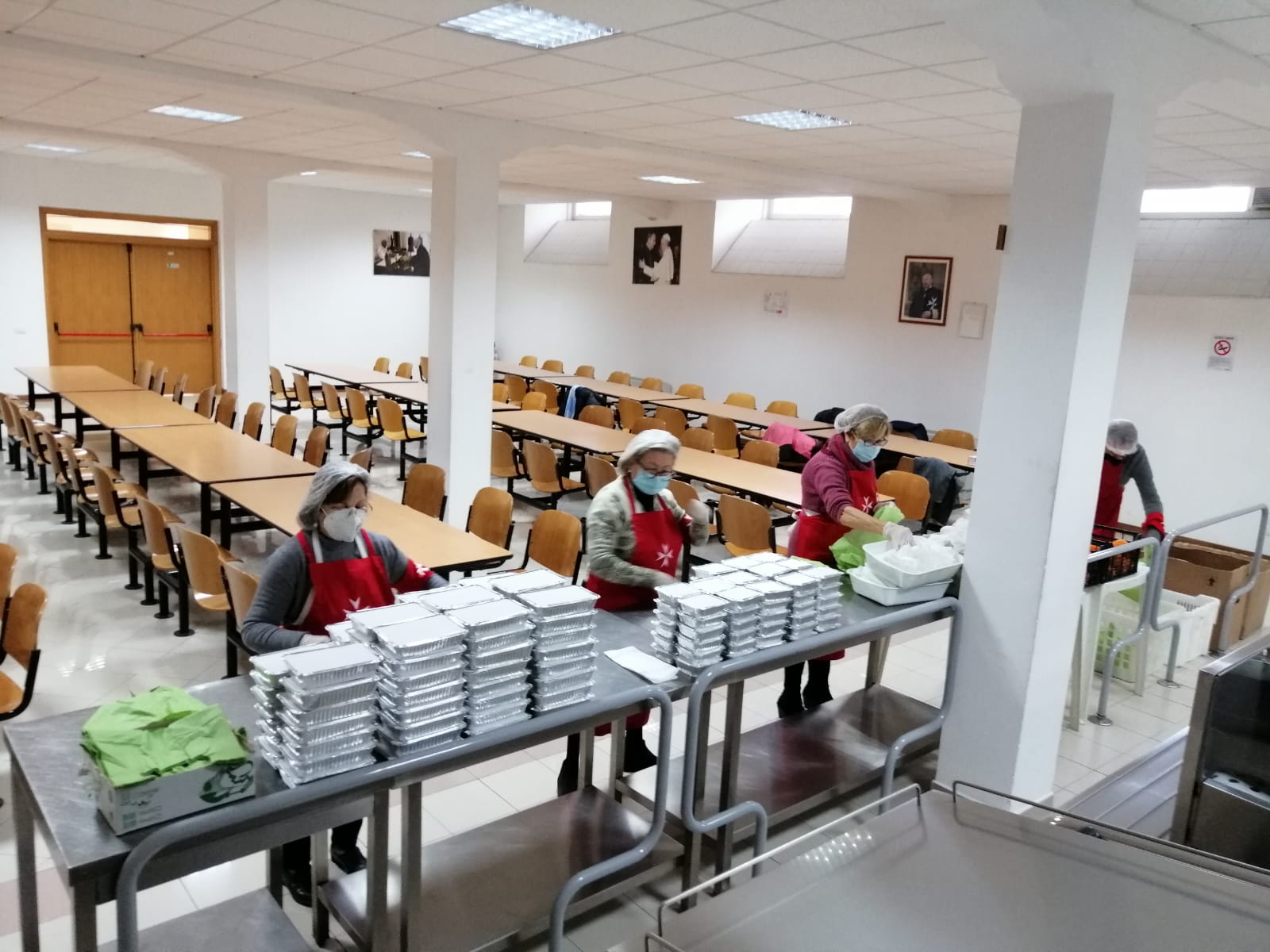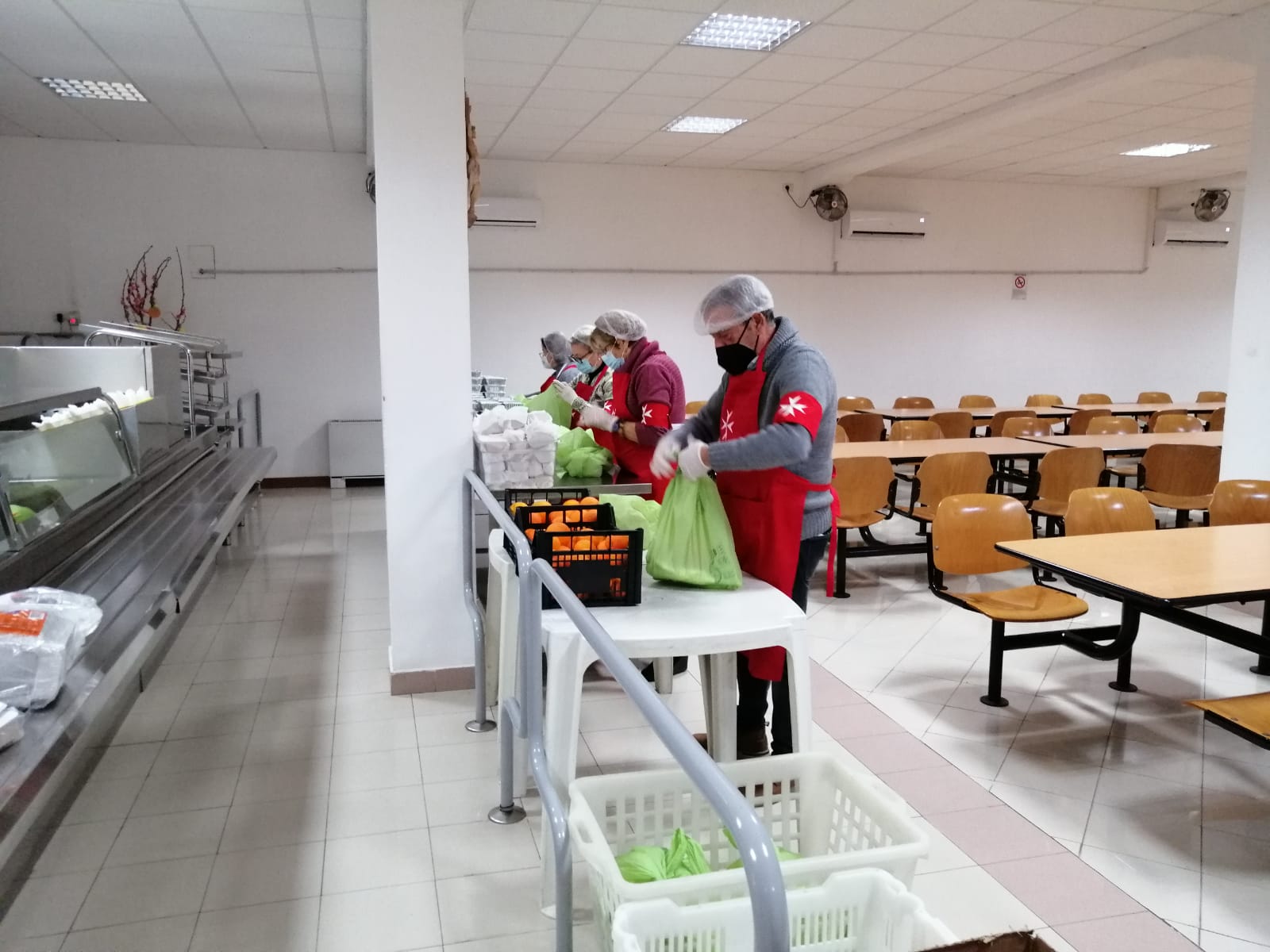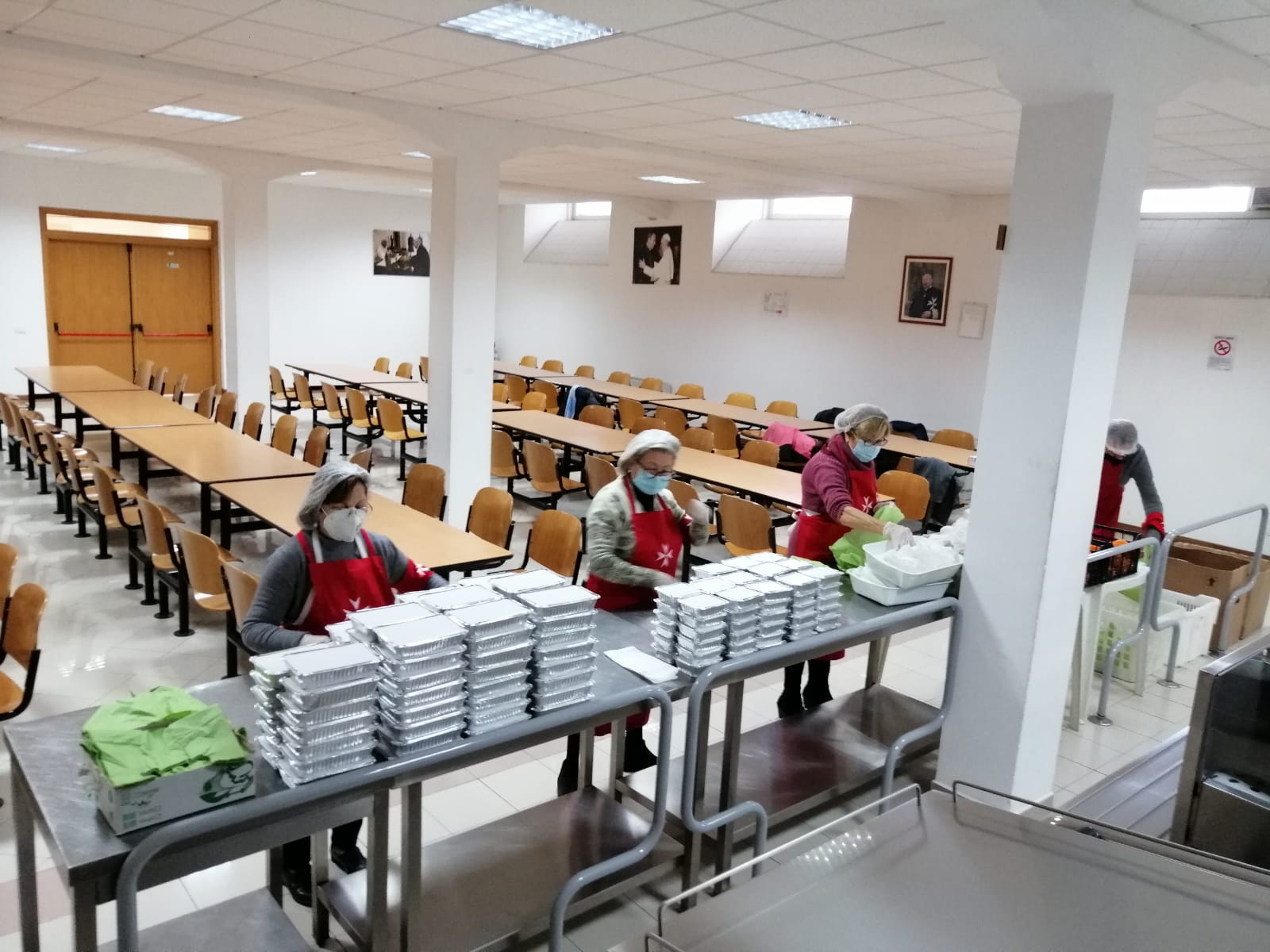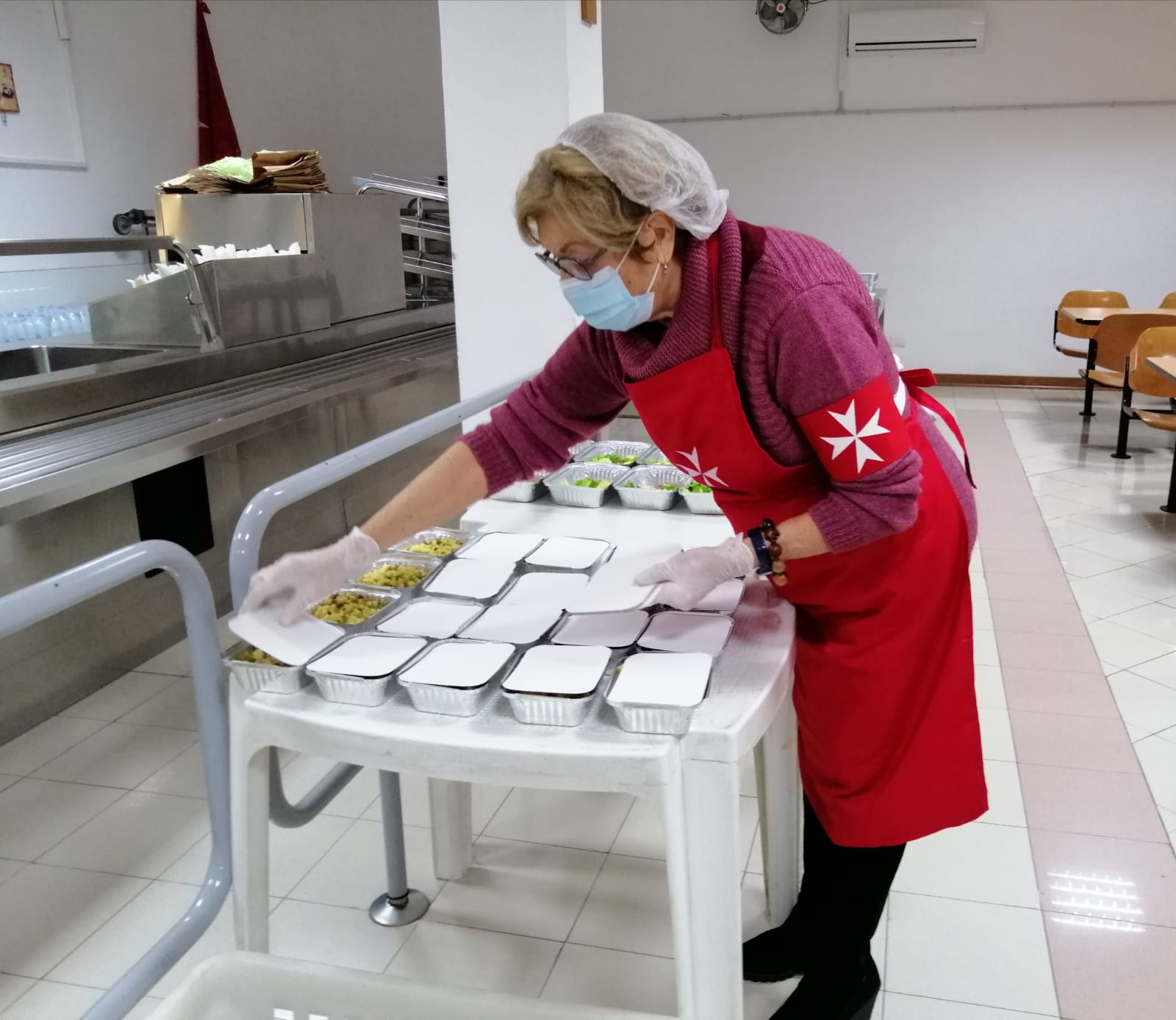Feeding the hungry is the first of the seven works of mercy of the Catholic religion and this simple exhortation inspires one of the most important activities of the Order of Malta’s associations worldwide. Through its extensive network, the Order served some five and a half million meals in its soup kitchens and its meals-on-wheels programmes in 2019. The Covid-19 emergency and its economic repercussions have increased the need for this service in many areas, with strict hygiene rules and new health and safety protocols having to be adopted.
For over six years, there has been a soup kitchen in the Pilgrim House in Pompeii run by the Grand Priory of Naples and Sicily, headed by Procurator Arturo Martucci di Scarfizzi, in premises linked to the Pontifical Shrine of the Blessed Virgin of Pompeii. “We offer all-round assistance, not just a soup kitchen,” Maria del Rosario Steardo, dame of the Order of Malta and leading light of the service, explained. “Along with meals, we also try to meet the various urgent needs of those using the facility, providing clothes and sometimes paying their electricity and gas bills.”
The health emergency has seen a growing demand for aid and there is now a different class of user; the new poor are coming to the soup kitchen, and not only from Pompeii but also from neighbouring towns. “Yesterday we had an elderly pensioner, who theoretically would not be entitled, but then I realized he was here because his son and his son-in-law who live with him had lost their jobs and were ashamed to come,” said Maria Steardo, emphasizing the value of proximity and listening. “Another gentleman who comes regularly is unemployed, he has cancer and a disabled son, and we pay his bills.”
The “Pope Francis Soup Kitchen” functions thanks to the efforts of two employees and 5/6 volunteers a day for a total of 75 volunteers. “It’s a great team of young people, they really set a good example, also for inclusion,” Maria Steardo emphasizes “there are four youths with difficulties who have been included and adopted by the rest of the group: they’re happy, they feel useful and there’s a good feeling of working together.”
The soup kitchen manages to distribute 130 abundant hot meals a day, and what is left over can also be served for dinner. The epidemic forced the kitchen, which previously represented a chance to socialize, to be converted into a take-away food service. In addition, 100 parcels of food and masks are handed out on a monthly basis. “On Christmas Eve we were able to donate 220 Christmas hampers, half without pork for Muslim families, and for the Epiphany we prepared stockings for the children. Moreover, once a week in the evening, the group of volunteers hands out some forty meals to rough sleepers in the area around the Naples railway station.
In normal times, there is a shower facility which also provides clothes and shoes to those needing them. It is used not only by the homeless but also by those without hot or cold or running water in their homes. Unfortunately, because of the pandemic, the reception service the Order of Malta’s volunteers offer in another part of the building to pilgrims visiting the shrine has similarly been suspended.




















